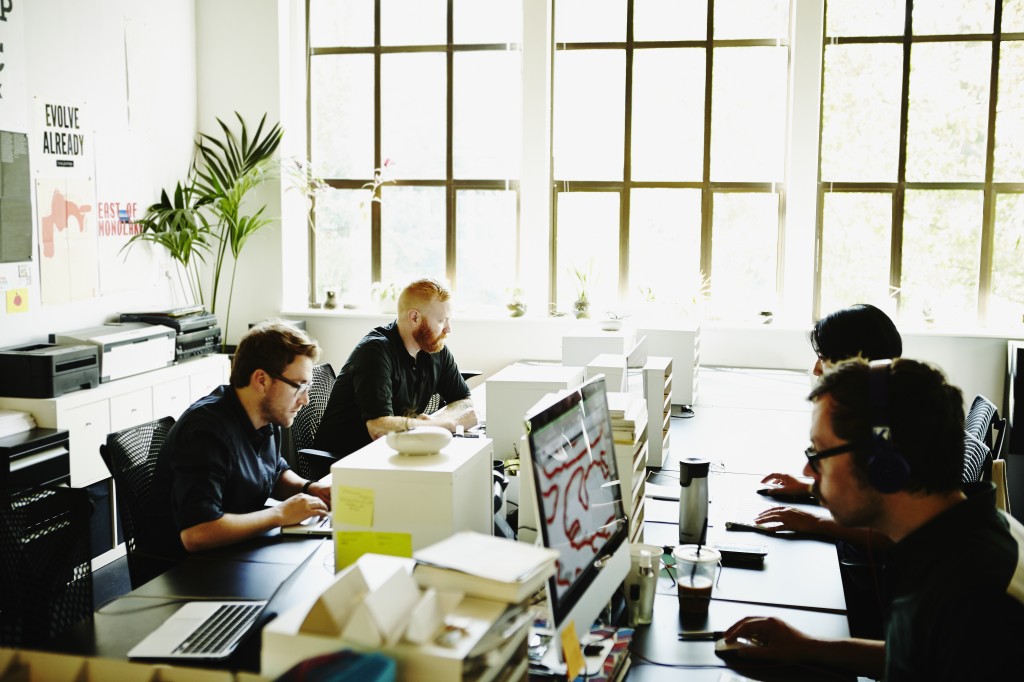There is lots of debate going on at the moment around the best approach to working as we emerge from the pandemic.
Many employees have adapted fully to working from home and don’t want to return to the office however some employers are noticing a degree of presenteeism and want to reignite a sense of collaboration and team-work.
In July, Chancellor Rishi Sunak called for young people to return to the office or risk falling behind in their careers.
“I doubt I would have had those strong relationships if I was doing my summer internship or my first bit of my career over Teams and Zoom,” he said.[1]
In some large corporations, things have got more heated as employees have pushed back to senior teams on their requests to start returning to the office and have threatened to quit if they’re forced.
It’s certainly a contentious issue and the most effective long term solutions will be e unique to an individual company.
With so much discussion around remote working over the last 18-months, let’s add some balance by taking a look at some of the benefits of office life.
Culture and Creativity
There’s no doubt about it, video calls kill creativity. Whether it’s someone presenting an idea to an eery silence or people getting cut off because the platform can’t handle more than one person talking at once. There’s no easy way to replicate an effective creative planning session without everyone getting together and throwing ideas and concepts across the room. Whilst not all roles require creative thinking, there’s an element of problem solving to most professional positions and the same rules apply. The office lends itself to collaboration and for most organisation, this is a key element of their culture. Having a strong sense of culture is directly linked to enhanced productivity because employees are more engaged, more collaborative and more passionate about their roles.
Peer to Peer Learning
A big argument for the return to the office is that people in the early stages of their career miss out on peer to peer learning, mentoring and relationship building. In previous work environments new starters would often shadow a team member and if they were struggling with something it was fairly easy to spend some extra time with a colleague going over it. in the virtual world, many people find it much harder to grasp complex processes and find it more uncomfortable reaching out for help in an email. It seems as though more and more people have become insular in their working and this makes it much harder for new starters to understand the bigger picture of how the team fits together. Pre-pandemic, many businesses encouraged people to interact with other teams by asking questions in person rather than via email, this is impossible with a fully remote work force and makes people’s networks much smaller.
Digital Presenteeism
Presenteeism has been a long-standing issue for many organisations. People showing up to work when they’re ill, disengaged workers, and a toxic culture of having to stay late. However, these things haven’t disappeared with remote working, it’s just gone digital. A recent survey found that 52% of employees were working longer hours since the shift to remote working[2] and there was an increase in the number of people checking in with work on their annual leave. As businesses start to look at the best working model for their staff, it’s important that the lines between work and down time are redrawn and that wellbeing is placed at the forefront of any decision making. Working in an office should allow people to separate work and home more easily and we need to start normalising switching off out of working hours instead of this “always on” culture that we’ve become accustomed to.
There is no “one size fits all” solution to the return to office life but employers will need to find the right balance in order to get the best from their staff.
People have adapted to working from home and are reluctant to change their working routines yet again but there are many benefits for all parties to having a flexible, hybrid approach.
As we emerge from the pandemic, it’s the perfect time to press reset on some of the old approaches that have been engrained in many organisations and look at the best working models for the modern world.
For more HR topics and discussion, follow us on socials.
[1] https://inews.co.uk/news/business/rishi-sunak-back-to-office-get-on-young-workers-out-of-touch-1134111
[2] https://www.peoplemanagement.co.uk/news/articles/half-professionals-working-longer-hours-at-home-poll-finds#gref

